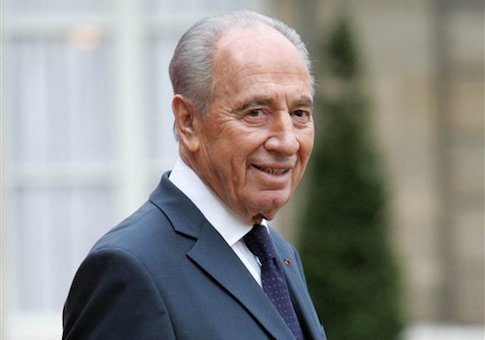With the passing of Shimon Peres at the age of 93, two very different men died. The first was young, pragmatic and tough-minded, skilled in negotiation and focused on building Israel’s military strength. The second was older, a dreamer, resolutely focused on a vision of peace that proved stubbornly impervious to reality.
The first Peres was tapped by Ben-Gurion to head Israel’s navy at the tender age of 24, and then became director general of the defense ministry at 29. He helped establish Israel’s arms industry and led the negotiations with France that made it Israel’s chief weapons supplier. He was deeply involved in the planning, with England and France, of the 1956 Sinai campaign and is credited with the construction of Israel’s nuclear deterrent at Dimona.
This Peres reacted to events like a security hawk. When in 1976 then-Prime Minister Yitzhak Rabin wavered between sending a rescue mission to Entebbe or giving in to terrorist demands, it was Peres, as defense minister, who pushed hard for the risky and unprecedented rescue effort. And it was Peres, within a divided government, who supported the settlement movement in Judea and Samaria.
But around 25 years ago, Peres was reborn. In 1993, as foreign minister he became the architect of the Oslo Accords. Until then, it had been illegal for an Israeli to speak to PLO representatives. In the blink of an eye, Yasser Arafat went from terror chieftain to world statesman. The new policy led to a Nobel Peace Prize for both Arafat and Peres, along with Prime Minister Rabin, whom Peres carried along with his vision. This is the Peres who promoted the idea of a New Middle East, in which cooperation would replace conflict.
The new Peres would become the most un-Jewish of Israel’s prime ministers. This is not in the sense of religious observance: Peres may have been less alienated from tradition than some of Israel’s other secular leaders. It is in the sense of departing from fundamental Jewish historical values and insights. One of the most central of these is the importance of remembrance. Zakhor—remember, according to former Columbia Professor of Jewish History Yosef Haim Yerushalmi, is invoked 169 times in the Bible. Indeed, Yerushalmi wrote a book entitled Zakhor in which he notes that only in Israel "is the injunction to remember felt as a religious imperative to an entire people." Yet Peres repeatedly insisted that he had no interest in the past. Noting the contrast between Yerushalmi’s emphasis on memory in Judaism and Peres’s cavalier dismissal of history, the pro-Israel group Americans for a Safe Israel compiled a pamphlet of statements from Peres on subjects like history, Zionism, and Judaism over nearly a decade following the Oslo Accords. Below is a sampling:
- To a Maariv interviewer (May 23, 1996): "It is a great mistake to learn from history. There is nothing to learn from history."
- To the Wall Street Journal (Sept. 30, 1994): "I have become totally tired of history, because I feel history is a long misunderstanding."
- To the Australia/Israel Review (June 1997): "I am totally uninterested in the past. If you wouldn’t ask me I wouldn’t talk about it. The past bores me."
He repeatedly made confident assertions about the near-future. He told the Labor Party Convention in 1996, "By the year 2000, we will overcome Hamas, Islamic Jihad and terrorism. By then we will bring a comprehensive peace to the Middle East." It was precisely in 2000 that Arafat launched his terror war on Israel.
No wonder those who knew Peres described him as an inveterate optimist. Optimism comes easy if you dismiss experience. Or better still, if you believe, to borrow a favorite Obama phrase, you are on "the right side of history." As Peres put it when receiving an honorary doctorate from San Diego State University on Aug. 29, 1997, "There is no single politician or party or government that can stop the march of history. And history is moving clearly in the direction of peace."
Unfortunately, you cannot fix unwise policy with fortune cookie-like utterances. Oslo has been a catastrophe. It has inaugurated an unprecedented wave of terror against Israeli civilians. It has split Palestinians into two entities, the Palestinian Authority and Hamas, both intent on destroying Israel. And it has led to Israel’s growing isolation internationally as "progressive opinion" rallies to the Palestinian cause. Even long time U.S. Arab-Israel peace negotiator Aaron David Miller admits Peres’s "legacy lies broken and bloodied."
World leaders and planeloads of celebrities who have flown to Jerusalem are paying tribute to the second Peres. He continued to tell them the fairy tale they wanted to hear, and which his unwavering faith made plausible: that there was a "two state solution," that Israeli concessions could achieve it, and that the Israel-Palestinian conflict held the key to solving all the region’s problems.
However, with the passage of time, the second Peres will likely go down as a false prophet. It is the first Peres who will likely be cherished for his wide-ranging contributions to Israel.
